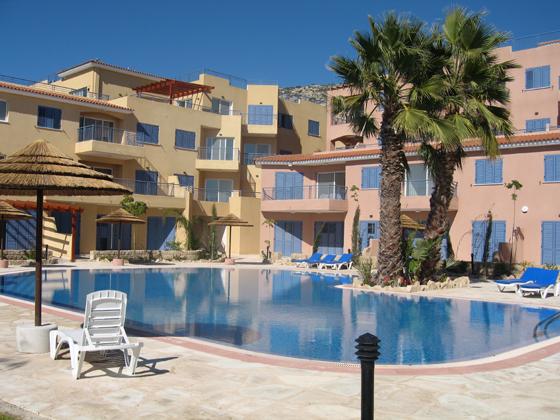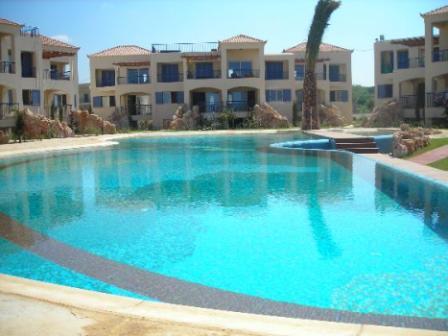Your Questions Answered
C Y P R U S
SO... TELL ME ABOUT CYPRUS.
You can drive on the left, the legal system is similar to the UK’s, there is a very low crime rate and don’t forget those tax incentives…! No inheritance tax and the famous Double Taxation Treaty that exists between Cyprus and the UK which allow Brits to receive their pensions and investment income in Cyprus without having to pay UK taxes.

Plots at Limassol
WHAT ARE THE TAX ADVANTAGES?
If you reside permanently in Cyprus you will pay income tax at 5%. Furniture and personal goods can be imported duty free providing they are not brand new, that is to say, you’ve had them for at least a year.
WHAT’S A ‘DOUBLE TAXATION TREATY’?
Cyprus has agreements with a number of countries, including the UK, to eliminate the double taxation of income earned in these countries. So, the tax levied in one country is credited against tax levied in the taxpayer’s country of residence. Where different rates apply, the tax payer will not pay more than the higher of the two rates. This can only be a good thing if you are a businessperson enjoying the favourable tax rates in Cyprus. Cyprus is not a tax haven; it is a country that offers tax incentives.
WHAT ARE YOUR INSPECTION TOURS LIKE?
The best! Inspection Tours allow you to stay in a three-star hotel. No pressure, we simply pick you up in the morning to look round and drop you off when you are finished. No obligation to buy! We will pick you up and drop you off at the airport too.
CAN I AFFORD TO BUY IN CYPRUS?
If you don't have the necessary finances and you don't want to re-mortgage or arrange a loan and you don't have 20% of the purchase price of a new-build available, you will need to sell your home before you can purchase in Cyprus. Ask us about loans in Cyprus. It is common practice in Cyprus to arrange a mortgage after having only paid 20% of the value of the property.
Once you have seen the right property, a deposit of €3,000 will usually reserve a property for you and secure the agreed price in euros before arranging stage payments (usually starting at anything between 15% and 30% if the property is new). Just in case you see a property on your visit, ensure you can transfer the deposit from your bank or take a credit card or cash to this amount with you to Cyprus. The best way to transfer money is with a foreign exchange company. Our preferred foreign exchange company is Global Currency Exchange Network. You can transfer money whenever you want. And it costs you nothing to set up!

Call us on 0845 22 55 777 and make the dream come true
I'VE SEEN A NEW HOME ON YOUR WEBSITE. CAN I GET IT CHEAPER BY NOT BUYING THROUGH LET'S LIVE ABROAD?
No. Your home is offered at the lowest list price by agreement with the builder. Walking off the street and buying direct at the lowest list price advertised can often lead to you spending more on 'extras'. Consultants in Cyprus can negotiate on your behalf. With resale properties the procedure is exactly the same as buying or selling through an estate agency in the UK. So, when it comes to finding the best sites and properties, why waste your petrol? Use ours!
DO YOU NEED PERMISSION TO BUY IN CYPRUS?
Permission must be sought in writing from the Council of Ministers once you’ve bought. This is merely a formality and nothing to worry about. You are entitled to a residence permit and if you can prove that you and your family are self-supporting you could apply for a permanent residence permit. To apply for a permanent residence permit your lawyer will need a copy of your sale or rental agreement; three photos and passports; copies of pension or retirement income or any documents to prove your income. If you use a UK lawyer or solicitor they will still, most likely, have to use a Cypriot lawyer, so save your money and use just one lawyer to take care of your purchase in Cyprus. Legal documents will be in English. You won’t need to be in Cyprus for any stage of the legal process of buying. In the case of a re-sale, transfer of property is done through the Land Registry Office. Once registered, the Title Deeds will be recorded in the government archives and are strictly confidential.
CAN I BUY MORE THAN ONE PROPERTY?
Not if you only have a temporary residence permit, but you can still put them in someone else’s name like your spouse or children.
SHOULD WE TALK POLITICS?
Let’s Live Abroad! advertise property for sale in areas like Ammochosta, Larnaca, Limassol and, of course, Paphos. The Mediterranean island of Cyprus is a member state of the European Union with, Nicosia its capital. The country itself is divided into four parts: the southern Republic of Cyprus, the Turkish Republic of Northern Cyprus, (Let’s Live Abroad! does not recommend purchasing property in this region), the United Nations-controlled Green Line separating the two and a couple of British military bases. The Turkish north is recognised only by Turkey and has been granted observer member status by the Organisation of the Islamic Conference under the name ‘Turkish Cypriot State’. Although native Turkish Cypriots have stood by their right to reclaim land and property lost during the 1974 coup, further conflict is not expected.
The Cyprus Land and Building Developers Association have been emphatic that companies should not sell homes in Northern Cyprus since the land the majority of companies are building on belongs to Greek Cypriot registered owners who had to flee to the South when Turkey invaded Cyprus. Thousands of registered owners have filed applications with The European Court of Human Rights. The leading cases of Loizidou v Turkey and Myra Xenides-Arestis v Turkey underpinned the right of Greek Cypriots to return to their properties and be compensated for loss of use from 1974 to the present day. Any ‘title’ on these properties is illegal and not recognised by the rest of the world. In fact, buyers are committing a criminal offence punishable by five years’ imprisonment and bound to be arrested and prosecuted upon arrival in Cyprus or their home country.
WHAT IS THE OFFICIAL LANGUAGE?
Greek, although English is widely spoken and understood. Understanding French, Russian and German is a bonus.
WHAT IS THE CURRENCY?
The euro is the major currency. Major credit cards like Visa and Mastercard are widely accepted.
CAN I STILL RECEIVE MY PENSION OR BENEFITS?
Yes, they are simply paid into your bank account. For more information: www.dss.gov.uk (for UK) or www.welfare.ie (for Eire).
WHAT IS THE COST OF LEGAL FEES?
Lawyers will charge anything between £300 and £600 and is subject to VAT (15%). (These are approximate costs in sterling since you will be charged in euros). There are also stamp fees to pay and the cost of an application to the Council of Ministries, which will set you back approximately £195. Stamp duty is paid at the time of signing your contract. It is levied at the rate of approximately £1.50 per £1,000 up to £100,000 and thereafter at the rate of £2 per £1,000. Your purchase contract must be stamped within 30 days of its dated signature or you could be fined.
WHAT OTHER CHARGES SHOULD I WATCH OUT FOR?
There is an annual government immovable property tax – paid in euros - of anything between £60 and £120. The local authorities also levy an annual tax of anything between £40 and £80 with the possible addition of sewerage tax from £40 to £80. These are usually paid monthly or quarterly in advance. Collection of rubbish by local authorities can cost £40 to £50 annually. Allow £150 to £300 annually for costs that cover cleaning and maintenance of common areas and gardens, swimming pool, electricity in common areas, management fees, disposal of rubbish and repairs on the development. Utility bills are based on the consumption of units but we recommend you allow around £180. You may want to add contents insurance on your property. As part of an after-sales service you will have your utility services connected and working and direct debits set up to be paid from your Cypriot bank account.
IS THERE AN INHERITANCE TAX?
No. Transfer of the title will involve a tax. Your lawyer will arrange this. First permission needs to be obtained from the Council of Ministries along with confirmation of receipt of the foreign funds. Upon transfer and registration in the purchaser’s name, the district Land Registry Office will charge a figure based on the market value at the time of purchase. On properties between £50,000 and £100,000 expect to pay 5% and properties of £100,000 and above, 8%.
SHOULD I MAKE A WILL?
It is recommended that you make a separate Will for your Cypriot assets.
In the case of a re-sale, transfer of property is done through the Land Registry Office. Once registered, the Title Deeds will be recorded in the government archives and are strictly confidential.

Aphrodite villas
CAN YOU HELP FURNISHING MY HOME?
Of course, if you give us notice we can take you shopping to the best furniture shops. They can advise you of developments that offer properties fully furnished or even find you a talented interior designer. You might prefer to take your own furniture out to Cyprus who will pack your belongings safely and offer you insurance against damages and breakages.
CAN YOU HELP ME RENT OUT MY PROPERTY?
Yes, with a comprehensive property management service offering everything from gardening, regular cleaning to the preparation of your property for the arrival of your guests.
WHAT ARE THE SCHOOLS LIKE?
There are both international and public schools up to various undergraduate courses covering a wide range of subjects as well as the University of Cyprus.
WHAT IF I GET SICK?
Always make sure you travel with your European Health Insurance Card to ensure you are entitled to healthcare in Cyprus. For more information on obtaining one: www.dh.gov.uk (for UK) or www.ehic.ie (for Eire). There is no national health service in Cyprus but the cost of medical treatment is low. Medical insurance is also comparatively inexpensive. It can cost anything from £10 for an appointment with a private consultant.
CAN I TAKE MY PET?
Of course, but first of all obtain a license from the Department of Veterinary Services in Nicosia. In some cases they may impose a quarantine period of six months. Contact the Pets Travel Scheme in the UK on 08702 411 710 or the Animal Health and Welfare Division in Ireland on 01 607 2827.
© Let’s Live Abroad! 2008
